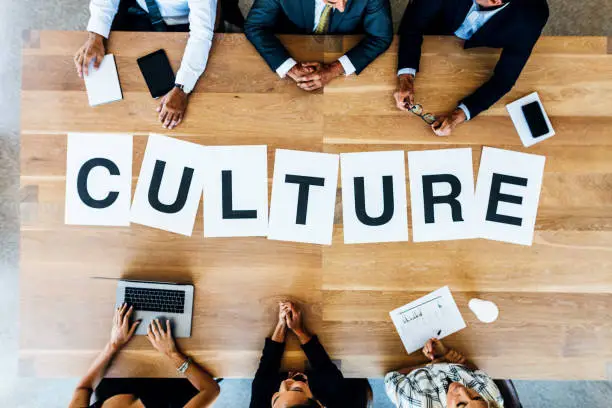Culture influences every aspect of our lives, from the food we eat to the way we communicate. Language, as a key component of culture, reflects societal values, traditions, and beliefs. In this post, we explore 20 words associated with culture, explaining their meanings and their significance in shaping human interaction.
20 Words Associated With Culture
1. Ethnicity
Ethnicity refers to a group of people who share a common heritage, culture, language, or history. It’s a central concept in understanding how cultures are formed and how communities bond over shared traditions. 10 Examples Of Construction Technology Revolutionizing the Industry
2. Tradition
Tradition encompasses the customs and practices that are passed down from generation to generation. It could be as simple as family gatherings or as complex as religious ceremonies. Traditions define a culture’s history and identity.
3. Ritual
A ritual is a series of actions performed in a particular order, often rooted in religion or tradition. Whether it’s a wedding ceremony or a rite of passage, rituals play a crucial role in preserving cultural heritage.
4. Identity
Cultural identity refers to how individuals or groups define themselves based on shared cultural traits such as language, religion, and customs. This concept is vital in understanding how people connect with their cultural roots.
5. Norms
Norms are the unwritten rules and expectations of behavior within a particular society or group. They guide how people interact, influencing everything from table manners to dress codes.
Linguistic Influence on Culture
Language is a vessel through which culture is communicated and preserved. The words we use reflect the values, beliefs, and priorities of our societies. Below, we delve deeper into words that have shaped 20 words associated with culture around the world. Exploring futuristic things: What’s Next in Innovation
6. Diaspora
Diaspora refers to a population that has spread from its original homeland. Often, it’s used in reference to communities that have retained cultural ties despite being geographically dispersed.
7. Hierarchy
Many cultures are structured around a system of hierarchy, determining individuals’ roles based on factors like age, occupation, or social status. This word is key in understanding how power and influence are distributed in society.
8. Symbolism
Symbolism is the use of symbols to represent ideas and beliefs. In many cultures, symbols—whether it’s the cross in Christianity or the yin-yang in Chinese philosophy—convey deep meanings.
9. Heritage
Heritage refers to the legacy of physical artifacts and intangible attributes passed down through generations. Cultural heritage includes everything from ancient buildings to folklore and traditions that shape a group’s identity.
10. Language
Language is the cornerstone of culture, serving as the medium through which stories, values, and customs are shared. Each language carries unique cultural insights, allowing individuals to express their worldviews.
Cultural Vocabulary Across Societies
Exploring the vocabulary specific to different societies sheds light on what they value most. Words associated with food, family, and art often reveal deeper insights into how 20 words associated with culture view life and community.
11. Cuisine
Cuisine is more than just food—it’s an expression of cultural identity. Whether it’s sushi in Japan or pasta in Italy, every culture has its unique culinary traditions that reflect its history and geography.
12. Kinship
Kinship refers to the bonds between family members. These relationships are central to many cultures, often dictating roles and responsibilities within families and communities.
13. Folklore
Folklore includes the myths, legends, and oral traditions passed down through generations. These stories often teach moral lessons and explain the mysteries of the world, serving as a vital part of cultural education.
14. Patriotism
Patriotism is the pride and devotion people feel toward their country or homeland. It’s often expressed through symbols, anthems, and ceremonies that reinforce national identity.
15. Artifacts
Artifacts are objects created by humans that hold cultural or historical significance. From ancient pottery to modern-day sculptures, artifacts tell the stories of past civilizations and their ways of life.
How Culture Shapes Our Perception
20 words associated with culture backgrounds influence how we perceive the world. Words associated with art, social structures, and community help define our collective worldview, shaping how we interact with others.
16. Custom
A custom is a traditional practice followed by people in a particular society. Customs vary widely between cultures and can range from simple greetings to elaborate ceremonies.
17. Festival
Festivals are public celebrations that often mark significant cultural, religious, or seasonal events. They bring people together to celebrate shared values and traditions, from Diwali in India to Carnival in Brazil.
18. Aesthetics
Aesthetics refers to the principles that define beauty and artistic taste within a culture. Every culture has its unique aesthetic values, whether it’s the minimalism of Japanese design or the bold colors of African art.
19. Community
Community encompasses the sense of belonging people feel toward a group. In many cultures, community ties are essential to social cohesion and support, influencing how people interact and rely on each other.
20. Multiculturalism
Multiculturalism is the coexistence of diverse cultures within a society. It promotes the recognition and respect of different cultural backgrounds, fostering an environment where diversity is celebrated.
Conclusion:
Language and culture are deeply intertwined. Each of the 20 words associated with culture in this blog post reveals how culture shapes not only our interactions but also our understanding of the world. Whether it’s through shared traditions, values, or customs, these words remind us that culture is a living, breathing entity—constantly evolving yet rooted in the past.



